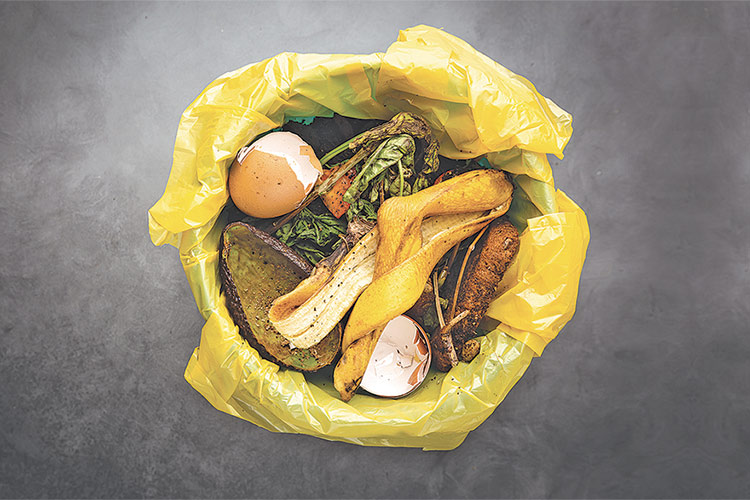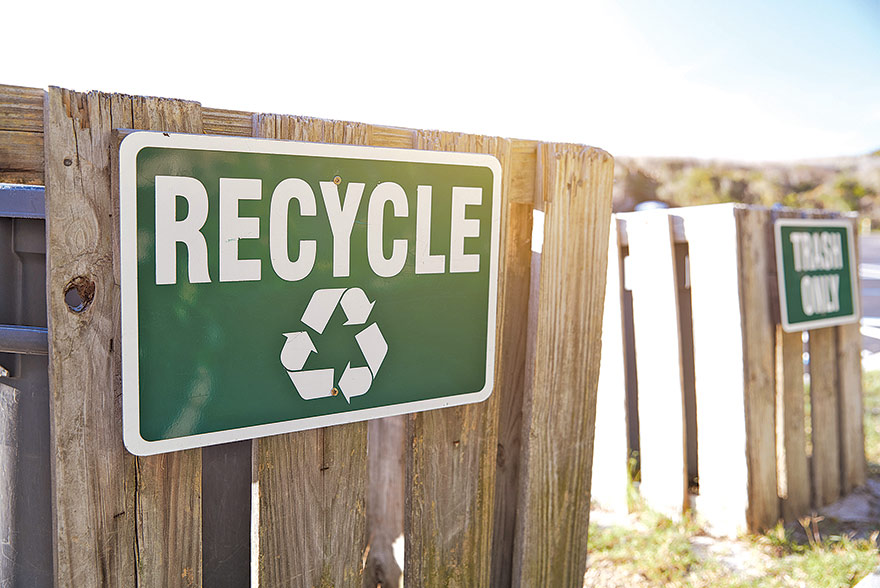Biowaste management is a starting point and a prerequisite for all waste management in a circular bioeconomy. It preserves the environment, creates new green jobs and enables Serbia to meet the recycling targets and requirements of the EUs new Green Deal and waste directives.
Denmark, Finland, Norway and Sweden, with the support of the Nordic Council of Ministers, have launched the project “Boosting Circular Economy in Serbia – Nordic Experience”.
The embassies invited experts from the Nordic countries to present good practice examples and show the importance and benefits of a circular economy. The first conference was held in Novi Sad on 15th September, and I was invited from Avfall Norge to share experiences from Norway.
Status of waste management in Serbia
– My knowledge of Serbia was very limited before this visit. I thus really appreciated learning more about the country and meeting many engaged Serbs and people who are now involved in developing the country in a circular direction. This includes the Nordic ambassadors and staff at the Nordic embassies.
Serbia has significant production of coal and steel, with high emissions. Environmental regulations and their enforcement, including following up on environmental violations, are insufficient to meet today’s expected standards. This results in a lot of pollution, together with emissions from traffic, coal power plants, heating with lignite and wood in houses, apartment and office buildings. In addition, there are the constant fires at landfills and dumpsites, as well as discharges due to a lack of waste management.
Only 11 of around 160 Serbian municipalities have some form of sorting and waste treatment. In practise, virtually all waste heads to landfill sites untreated. And most of these sites are not “sanitary” landfills, and are thus categorised as dumpsites.
Landfill fires – a big problem
– Belgrade and other cities in Serbia and the Balkans regularly top lists of the most polluted cities in the world.
A report from the Global Alliance for Health and Pollution from 2019 stated that Serbia has set a record in Europe for pollution-related deaths measured per capita.
In August this year, fires again broke out in Vinča, a mega landfill located 12-15 km from the centre of Belgrade. The toxic smoke could be felt throughout the city. Unfortunately, this is not an unusual phenomenon in Serbia.
Biowaste must be sorted and treated separately
– In 2025, landfills will account for 8-10% of man-made greenhouse gas emissions, according to international waste organisation ISWA’s pioneering report from 2016. Today, Serbia does not have adequate landfill fees or other incentives to reduce the amount of biowaste discarded at landfill sites. The renovation fee for households is artificially low (about a tenth of Norway’s), which is far from enough to secure investments in infrastructure and solutions for waste management.
The experience from Norway and other Nordic countries is that positive change comes through legislation and the enforcement of regulations, national objectives, municipalities’ own goals, climateand waste management plans and market requirements, including the demand of inhabitants for a better environment.
Over recent years, development has also been largely driven by the UN Sustainable Development Goals, transition to a circular economy – new ambitious goals and regulations from the EU, including the Green Deal and “Fit for 55” and taxonomy – sustainability criteria for investments.

Waste management provides renewable energy
– An investment in sustainable waste treatment and recycling is also a great opportunity for more renewable and local energy production and new green jobs in Serbia. For example, biowaste can be converted into sustainable biogas that replaces fossil natural gas or diesel, but also into biofertilizer that replaces fossil fertilizers. The residual waste, i.e., products that cannot be reused, repaired or recycled, can be incinerated with energy recovery and district heating. Even the ashes from the incineration process can eventually be used as a resource. Precious metals can be extracted in “urban mining” processes and the salts from the ash can be utilised in new industrial processes.
Norwegian company NOAH will soon start building a pilot plant for salt recycling on the peninsula of Herøya in Norway. The project is called Resalt and the goals are to reduce the amount of hazardous waste that is stored and produce high-quality salts from a number of industrial streams.
If Serbia is to achieve the goals and requirements of the EU’s circular economy targets, the country must make major improvements to the whole waste system
Biowaste must be handled as a resource, sorted out at source and treated separately. All other material recycling and utilisation of household waste as a resource into new products depends on wet biowaste being sorted. In Serbia, as much as 50% of household waste consists of biowaste. This waste has up to 70% water-content and will contaminate all other waste streams if not separated at source. Moreover, due to its low calorific value, this wet biowaste is not suitable for waste incineration. Nor will incineration of biowaste meet the EU standard for recycling.
You cannot make new high-quality recycled materials from a dirty and contaminated starting point. ‘Shit in – shit out’ applies just as much in the recycling industry as it does in many other industries.
New green jobs in the circular bioeconomy
– The first treatment plant in Norway (incineration) was built in Oslo in the late 1960s. The country today has as many as 16 industrial biogas plants, 50 composting plants and 20 incineration plants of varying sizes.
Norway and other Nordic countries are considered as being very advanced and have world-leading companies in deposit return schemes of empty bottles (PET and aluminium, with 90% collection rates) as well as advanced sorting systems (Tomra) and advanced biogas systems for sewage sludge (Cambi). Still, the country needs to improve collection and recycling rates from today’s level of around 35-40% for biowaste on the whole.
From the value chains of biogas and biofertilizer from biowaste, Norway can – with its 5.3 million inhabitants – create 20,000 new green jobs within 10-20 years, according to a study by Avfall Norge. Additionally, value creation comes from all other materials and value chains in the circular economy, reuse, repair and new business models and business opportunities in almost all product types, deliveries and services.
Another study from Norway has shown that the transition to a circular economy in general can contribute to the creation of 50,000 new jobs, reduce CO2 emissions by about seven per cent and improve the trade balance by more than two percentage points.
Serbia begins with garden- and park-waste
– Biowaste, i.e., green waste, garden/ park waste and food/kitchen waste, accounts for 50% of total waste production in Serbia, with over a million tons annually.
Speaking at the Novi Sad conference, Assistant Minister Sandra Dokić, responsible for strategic planning and European integration at the Ministry of Environmental Protection, presented a draft of a programme for the collection and treatment of garden- and park-waste.
The programme proposal includes five regions with 25 municipalities. Garden waste from households is planned to be treated by home composting, assisted by local training programmes conducted by NGOs and communication arrangements.
The government will then support and tender the purchase of composting bins, collection solutions with “big bags”, collection vehicles and open composting plants (windrow composting) for the collection and treatment of green waste.
Improved biowaste management is key to recycling household waste and diverting such waste away from landfills, with all the associated environmental problems. This programme can therefore be a smart way to get started in Serbia.
ABOUT THE AUTHOR
Jens Måge is a circular economist specialising in the circular bioeconomy, biowaste collection and treatment and textiles. He is an advisor at Avfall Norge and a board member of the European Compost Network, ECN
